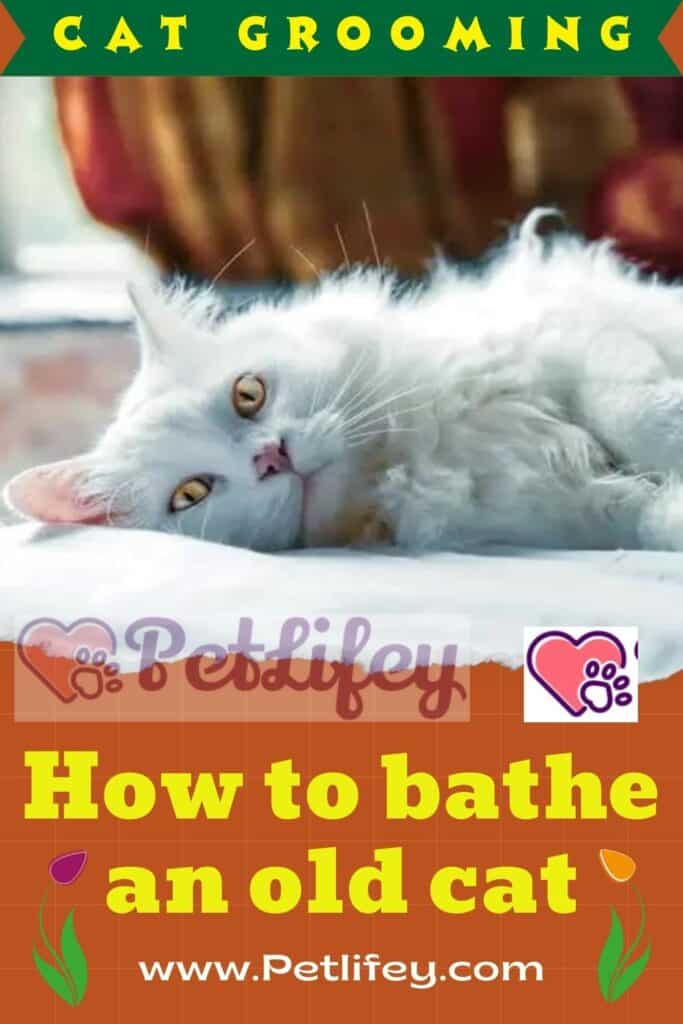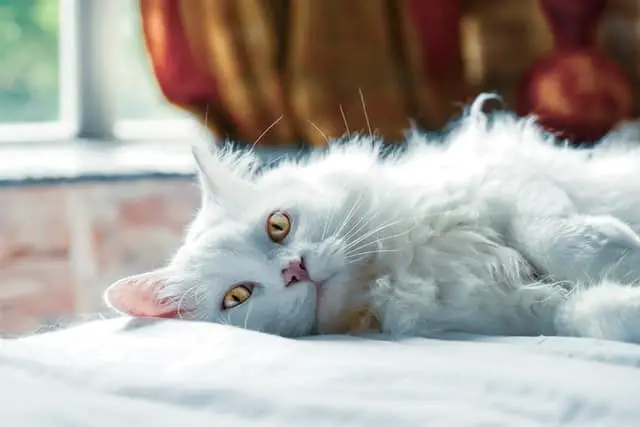When it is grown up, how should an older cat be washed? All the tips and tricks to make this operation less complicated.

The years pass, and they pass for everyone, even for our domestic cats: when it has now passed a certain ‘threshold’ and has entered the third age, perhaps it is appropriate to know how to wash an elderly cat . Obviously the operation will be different than when it was a kitten but no more difficult: here is a series of useful tips to make the moment of grooming a pleasant relaxation for the cat and its beloved master.
Does the older cat get dirty more?
No, hygiene is not directly related to age of course. But it can happen that the older cat has difficulty in making his needs in the litter box, as he has always been used to. We know how careful and scrupulous cats are in cleaning not only objects but also environments: always clean litter, far from the place for consuming the meal, they must never smell bad smells (theirs) and so on.
It is likely that he only wants to mark the territory, even when he is elderly and has been in charge of it for some time, or because he feels his role is threatened or because he has become more sensitive to the smell that emanates from that sand (which perhaps should be replaced ).
How to wash an elderly cat: tips for the coat
But isn’t the cat not ‘famous’ for taking care of its own cleanliness by itself? Indeed, yes, but when he becomes elderly there are numerous reasons that could lead him to no longer take care of himself as before (and it is not always just a fact of fatigue). The older cat will therefore need our help if he stops licking himself and shedding excess hair.
In fact, since our cat will not regenerate its coat by itself, it will be necessary to brush it both to eliminate the dead hair part and to clean it from residues of dust, external elements and more.
In this way it will always be soft and silky, especially if we use specific and not too aggressive products. It will be enough to brush it regularly once or twice a week in the case of a short-haired cat ; if, on the other hand, it is a long-haired cat, let’s cut out this moment of relaxation with him every day.
This will not only prevent the hair from remaining dirty but will also be able to prevent the formation of knots, which could easily hide in that shaggy hair. On the market there are special brushes for long hair : ask our trusted dealer.
How to wash an elderly cat: beware of ‘negligible’ points

Even the most attentive of owners may forget about areas that are difficult to clean, not only because the cat may not like you to touch them but also because they are ‘well hidden’. We are talking about the ears, which can become receptacles for dirt, and the eyes.
In fact, the latter can often tear and can therefore form annoying as well as unsightly crusts around them. In this case it is advisable to clean them with a damp cloth as often as possible, not only when we see that the crust has already formed but also if we see them wet.
Finally, the best advice is to wash it with a bath, but it does not necessarily mean that it will be an easy or pleasant operation: if the cat does not have a good relationship with water it is perhaps because it has never been used to contact with it. If this is very difficult to do, then it will be advisable to get help from an expert groomer.






